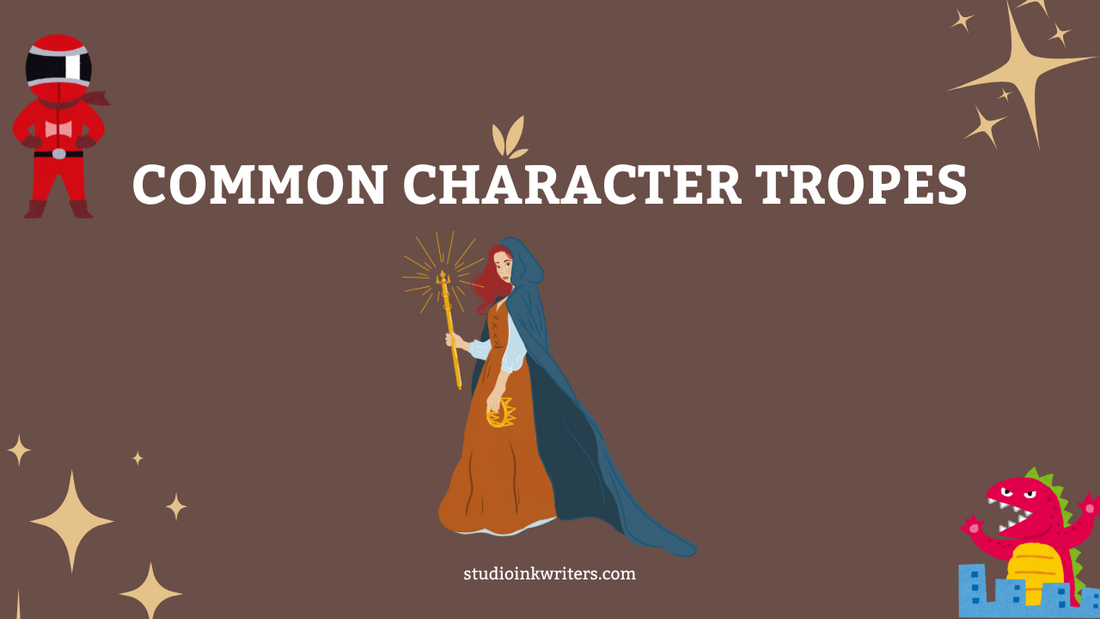
Common Character Tropes Every Writer Should Know
Share
Character tropes are recurring types or patterns that show up across stories, genres, and media. Understanding them can help you craft compelling characters, avoid clichés, or cleverly subvert reader expectations.
Here are a few widely recognised character tropes across genres and media:
Heroic Tropes
- The Chosen One – A seemingly ordinary character destined for greatness.
- The Reluctant Hero – Pulled into conflict against their will.
- The Underdog – Overcomes odds through grit and growth.
- The Noble Warrior – Honour-bound, skilled in combat, and morally upright.
- The Tragic Hero – Doomed by a personal flaw or fate.
- The Antihero – Morally grey or flawed protagonist who still drives the story forward.
Villain Tropes
- The Evil Overlord – Wants power and control; often cold, calculating.
- The Corrupt Official – Wields authority immorally.
- The Fallen Hero – Once good, now turned bad (often through betrayal or trauma).
- The Femme Fatale – Seductive and manipulative, often in noir stories.
- The Mad Scientist – Obsessed with progress, often without ethics.
- The Antivillain – Has noble goals or morals but uses questionable methods.
Supporting Character Tropes
- The Wise Mentor – Older, experienced, guides the protagonist.
- The Loyal Sidekick – Provides emotional or comic relief; often underdeveloped.
- The Comic Relief – Offers levity, sometimes at the cost of depth.
- The Funny Best Friend – Quirky, loyal, often steals scenes; brings balance to the protagonist.
- The Sacrificial Lamb – Dies to catalyse the hero's growth.
- The Love Interest – Exists primarily to support the protagonist’s arc romantically.
- The Magical [Minority] – A marginalised character whose only purpose is to support the protagonist with mystical wisdom or powers.
- The Fridged Character – A character (often female) who is killed off to motivate another character’s development, typically a male protagonist.
Relationship & Team Dynamic Tropes
- Enemies to Lovers – Rivals who develop romantic feelings.
- Fake Dating – Two characters pretend to be in a relationship and develop real feelings.
- The Found Family – A group of misfits who become a surrogate family.
- The Love Triangle – Protagonist torn between two potential partners.
- The Bromance – Deep platonic friendship between male characters.
- The Token [Identity] – A character present solely for diversity points.
- The Damsel in Distress – Passive female character whose role is to be rescued.
- Weird Small Town Characters – Quirky, charming, or mysterious townsfolk who reflect a tight-knit or strange community, shaping the story’s atmosphere, tone, world, and subplots.
Personality-Based Tropes
- The Ice Queen – Cold, aloof woman who hides vulnerability.
- The Cinnamon Roll – Sweet, wholesome character, often underestimated.
- The Bad Boy – Rebellious and brooding, usually with a hidden heart of gold.
- The Mean Girl – Popular, pretty, and cruel.
- The Snark Knight – Sarcastic but secretly noble.
- The Manic Pixie Dream Girl – Eccentric and spontaneous, exists only to help the (usually male) protagonist grow. illusion of complexity.
- The Stoic Protector – Emotionally guarded but fiercely loyal and protective.
- The Charming Rogue – Charismatic, cunning, and rarely plays by the rules.
- The Cynical Realist – Practical, often sarcastic, grounded in harsh truths.
Some of these tropes make for great storytelling and really connect with readers. Some of them don’t work because they’re overused, predictable, or rely on tired stereotypes that turn readers off. Be wary of using these tropes. Subverting these ‘bad’ tropes can help in creating really solid characters. More on that in another post.
Follow me on Instagram for more practical writing tips and writing-life strategies.
Click this link to grab your free writer tools - Worldbuilding worksheets, Form, Style, & Voice Sheets and more.







